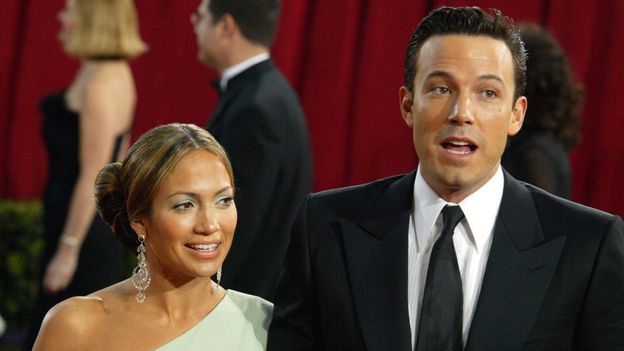
Then there were shorter-lived pairings that still burn bright in the cultural imagination: Anjelica Huston and Jack Nicholson were the cool kids of cinematic rebellion in the 70s, while the nattily attired Elliott Gould and Barbra Streisand, two of Hollywood’s most prominent Jewish stars, also ruled the decade. Those were the sorts of couples whose dinner parties you’d love to be invited to. Taylor and Burton were so madly in love and yet so stormy that they divorced and then remarried again only 16 months later – only to divorce for the second time eight months later. Taylor had a total of seven husbands (eight if you count Burton twice). Some of them were pretty famous in their day, including actor Eddie Fisher. And yet no one seemed to meet the stature of Burton in her eyes, from the beginning of their torrid affair during the making of 1963’s Cleopatra, when each was still married, to Fisher and actress Sybil Williams, respectively. Their amour fou and their lavish lifestyles were catnip for the public. As Burton had it, “Our love is so furious we burn each other out”. Or maybe you prefer the steadiness of the adorable Goldie Hawn and the forever-hunky Kurt Russell, who have been married for nearly 40 years and still seem like teenage sweethearts.
In the end, the public interest in the Hollywood power couple – as well as the question of what makes some more powerful than others – comes down to many things. Maybe it’s some pre-conditioned social urge to see other humans romantically paired-off into cute little units, or stems from some prurient sexual desire for one or both people. Maybe – OK, definitely – we’re just nosy. From Confidential Magazine, the audacious scandal mag that was taken to court in 1957 for its rumours about everyone from Grace Kelly to Robert Mitchum, to today’s Instagram gossip source Deuxmoi, which publishes blind items from anonymous sources directly to its near one million followers, gossip is certainly not a new phenomenon.
The public can’t help themselves, even while knowing it’s all a little vulgar and a little scurrilous. When it comes to the Hollywood power couple, even the break-up or divorce provides something to the audience. In the press and among its consumers, there is simultaneous sadness and schadenfreude: see, people crow, they aren’t perfect after all. What’s heartening about the reaction to the Jennifer Lopez and Ben Affleck reunion is that it’s born, perhaps, of an inverse collective impulse: a determined, idealistic faith in the prospect of enduring love, even when it seems profoundly unlikely after so many years of two people being apart. Bennifer has set the whole world talking not because of who they are, but because of who we are. For many millennials, certainly, they make us feel as young and as hopeful as we were in 2002. Don’t we all want a love like that?
Love film and TV? Join BBC Culture Film and TV Club on Facebook, a community for cinephiles all over the world.
If you would like to comment on this story or anything else you have seen on BBC Culture, head over to our Facebook page or message us on Twitter.
And if you liked this story, sign up for the weekly bbc.com features newsletter, called The Essential List. A handpicked selection of stories from BBC Future, Culture, Worklife and Travel, delivered to your inbox every Friday.
from WordPress https://ift.tt/3iYdOuX
via IFTTT


No comments:
Post a Comment